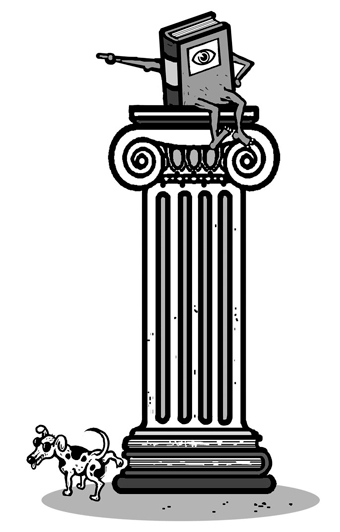

Because there is no need for reasons to read the classics; because they are infinitely more fun than their commentators (and articulists about the classics). Because Italo Calvino advises this; because they tend to sell in much cheaper editions; because time has taken good care of passing through the sieve the bad works of the past, without hurting the sensibility of any author, the present courtesy leads to the disappearance of the forests and the loss of the readers; by solidarity, they are minority; because they allow us to translate from us more than us, without hurting the sensibility of any author; because the older speakers can read the word.
Well, if you have had the patience to come here, reader; until now it has been nothing more than a trap, so that we take away from friends who cannot tolerate reading the classics and we can make us, the others, stay alone, we can continue to speak and sincerely criticize the issue, without prejudice. I remember once, on a desk, I heard a great Basque writer commenting with contempt that he did not read anything before the 19th century. All the reasons for the first paragraph are pure rhetoric, they do not serve at all, less to persuade someone to try a text before the 19th century. In this new paragraph (beyond contemporary books and not why read enthusiastically), I cannot resort to a greater goal than to explain why I occasionally read classics: not because they are better – some are notoriously bad and badly aged – but because I can be out of the frenzy of fashion. I have always been disturbed by the frivolity with the text of those who seek their last cry. What they're passionate about is finding and making something known first, not texts. These texts are already abandoned when everyone has discovered them. These texts may be a few years or centuries, I do not care. When they're no one's, then I jump over them, I'm a devastator of literature. Be it their merit, pleasure is mine.
The reader who has reached this third paragraph, who has overcome the cheap apology of the classics and the post-modern cheat that I have followed, the one that is statistically improbable, the death mate, I do not understand what has come so far, perhaps with the intention that the great Basque writer mentioned above is Iñigo Aranbarri, without the excuse that he can rely on his defence that he does not need.